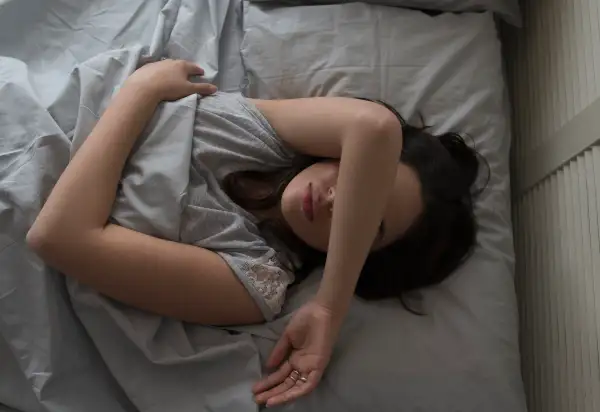Everyone Wants to Sleep Better. Here Are Some Cheap and Easy Strategies That Actually Work

Don’t lose sleep over it, but Americans are lousy sleepers. A new survey from the Better Sleep Council finds that many of us spend our nights tossing and turning: Nearly 60% of women are poor sleepers, compared to just over 40% of men, according to the study.
If you're among the many people who wonder "Why can't I sleep better at night?" researchers say there are a whole host of possible answers. Stressful jobs, money worries, chronic pain, medical issues, and relationship challenges are all reasons why people find themselves staring at the ceiling at 3 a.m. wondering how to sleep better. But there are some solutions and sleep aids to consider if you want to know how to sleep better.
The Right Pillows and Mattress for You (and Your Pet)
People who get aches and pains when lying down represent 29% of poor sleepers, the survey found. There’s no best sleeping position that will suit everyone, but most people tend to be side sleepers.
If sleeping on your side leaves you stiff or sore when you wake up, you might want to consider a pillow designed to accommodate that position.
The sleep survey also found that pet owners don’t sleep as well. Mary Helen Rogers, spokeswoman for the Better Sleep Council, says that’s because although many of us let our furry friends sleep with us — but we really shouldn’t. “They should have their own because they need sleep as well. Investing in a nice comfortable bed will give both you and your pet a good night’s sleep,” she says.
If you (or your pet) is dead-set on sharing the bed, Rogers says it’s a good idea to get a mattress and pillow protectors to cut down on hair and dander getting into them. You'll also want to buy a good mattress that's big enough for everyone in the bed.
Nighttime Routine: Sleep Tips & Tricks
Women are more likely than men to have trouble getting a good night’s rest, the survey found, particularly if they're moms with young kids. Over 70% of women with children under age 18 at home are bad sleepers.
"Between children, work and school, women are known for wearing many hats,” says Rogers of the Better Sleep Council. “They are also known for not being able to ‘turn it off’ and for putting themselves — and their sleep — last.”
She suggests creating and keeping nighttime habits that will help relax your body and mind. Actually, having a regular bedtime routine is good advice for anybody looking for the best way to sleep, Rogers says.
Her advice for how to sleep better starts with setting an alarm — not to wake up, necessarily, but to remind you when it’s time to start winding down and getting ready for bed. Incorporating some yoga or light stretching can help, she says; keeping a back-friendly mat like this one in the corner of your bedroom will make it easy to get into and stick with the habit. Rogers also says that herbal tea (we're fans of Yogi brand), aromatherapy (get a roll-on of a soothing scent or use a diffuser), and journaling can put you in a frame of mind for sleeping.
Blackout Curtains and Sleep Masks
Another key to better sleep is avoiding light. “Eye masks or blackout curtains are ideal because the light can disrupt your sleep,” Rogers says.
The best sleep mask is one that won’t allow light to trickle in; we like this contoured one because the shape does a really good job at keeping out light.
Blackout curtains should be heavy enough that light won’t penetrate them, and be large enough to completely cover the window and block out any ambient light. These Amazon bestsellers come in three lengths, 16 colors and have racked up more than 6,700 user reviews.
The lights in your room and on your screens can create a problem you should address, too. “Evening screen time, especially those with blue or LED light, can sabotage sleep,” Rogers says. Even nightlights can be a culprit. “Make sure any nightlights are yellow and not blue or LED,” she says.
More Sleep Aids and Strategies
Many of the purported health benefits of Himalayan salt lamps are debatable, but they definitely are ideal for providing a warm glow.
Instead of browsing the internet on your phone before bed, Rogers suggests picking up a book. “Try reading a book, which is a great way to slow the mind and clear your thoughts from the stress of the day,” she says.
But as it turns out, the best sleep aid might be something you don’t even have to buy.
“Financial woes heavily impacted the quality of sleep,” Rogers says. The sleep survey found that people who are worried about their finances make up nearly three out of four poor sleepers; people who live paycheck to paycheck comprise more than half of poor sleepers. To fix this, Rogers says, start saving — it doesn’t even matter for what.
“We found that those who regularly save for various reasons such as vacation, unforeseen home or medical expenses, children’s college, and retirement were more likely be classified as an excellent sleeper,” she says.
We’ve included affiliate links into this article. Click here to learn what those are.
